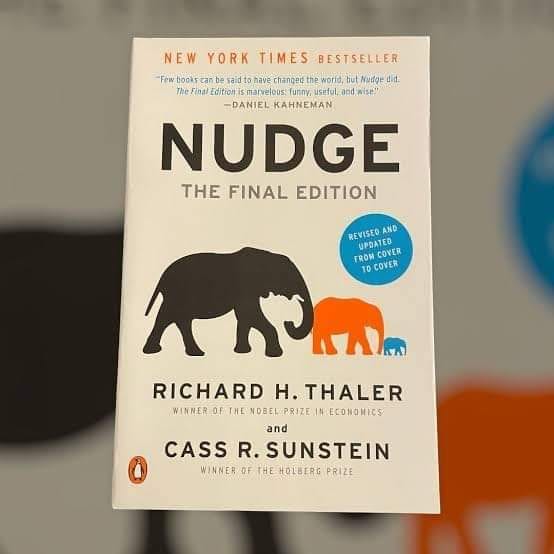The Importance of Nudge Theory in Decision-Making
Nudge theory, a concept rooted in behavioral economics, explores how subtle changes in the environment can significantly influence people’s decisions and behaviors. Coined by Richard Thaler and Cass Sunstein in their groundbreaking book “Nudge: Improving Decisions About Health, Wealth, and Happiness,” the theory has garnered attention for its potential to promote better choices without restricting freedom of choice.
Understanding Nudge Theory
At its core, a “nudge” is a positive reinforcement or indirect suggestion that encourages people to make decisions that are in their broad self-interest. Unlike traditional forms of persuasion that rely on direct orders or bans, nudges aim to steer individuals toward beneficial behaviors while maintaining their autonomy. For instance, placing healthier foods at eye level in a cafeteria nudges patrons toward better dietary choices without forbidding less healthy options.
The Role of Behavioral Insights
Nudge theory is grounded in the understanding that human decision-making is often irrational and influenced by cognitive biases. People tend to rely on mental shortcuts, leading to decisions that may not align with their long-term goals. By leveraging insights from psychology and behavioral economics, policymakers and organizations can design environments that reduce friction and guide individuals toward healthier, more productive choices.
Practical Applications of Nudge Theory
- Public Health: Governments and health organizations have successfully implemented nudges to promote healthier behaviors. For example, automatic enrollment in organ donation programs or vaccination drives can increase participation rates significantly. By simplifying the process, these nudges can save lives.
- Financial Behavior: Nudging can also play a crucial role in personal finance. Automatic enrollment in retirement savings plans encourages employees to save more for their future. By making saving the default option, individuals are more likely to contribute without actively making the decision to do so.
- Environmental Sustainability: Nudges can help foster environmentally friendly behaviors. For example, providing information about energy consumption in relation to neighbors’ usage can motivate individuals to reduce their energy consumption, capitalizing on social norms.
- Education: In educational settings, nudges can improve student performance. Simple interventions, like sending reminders for deadlines or providing clear pathways for course selection, can enhance student engagement and success.
Ethical Considerations
While nudging has proven effective, it also raises ethical questions. Critics argue that it can manipulate individuals and infringe on personal autonomy. Therefore, it’s crucial for policymakers and organizations to ensure transparency in their nudging strategies. The goal should be to empower individuals to make informed decisions rather than to coerce them into specific behaviors.
Conclusion
Nudge theory offers a powerful toolkit for influencing behavior in a variety of fields, from public health to finance and environmental sustainability. By understanding the subtle cues that shape decision-making, we can create environments that promote better choices and improve overall well-being. As we navigate an increasingly complex world, the importance of nudging cannot be understated; it provides a pathway toward fostering positive change while respecting individual freedom.
